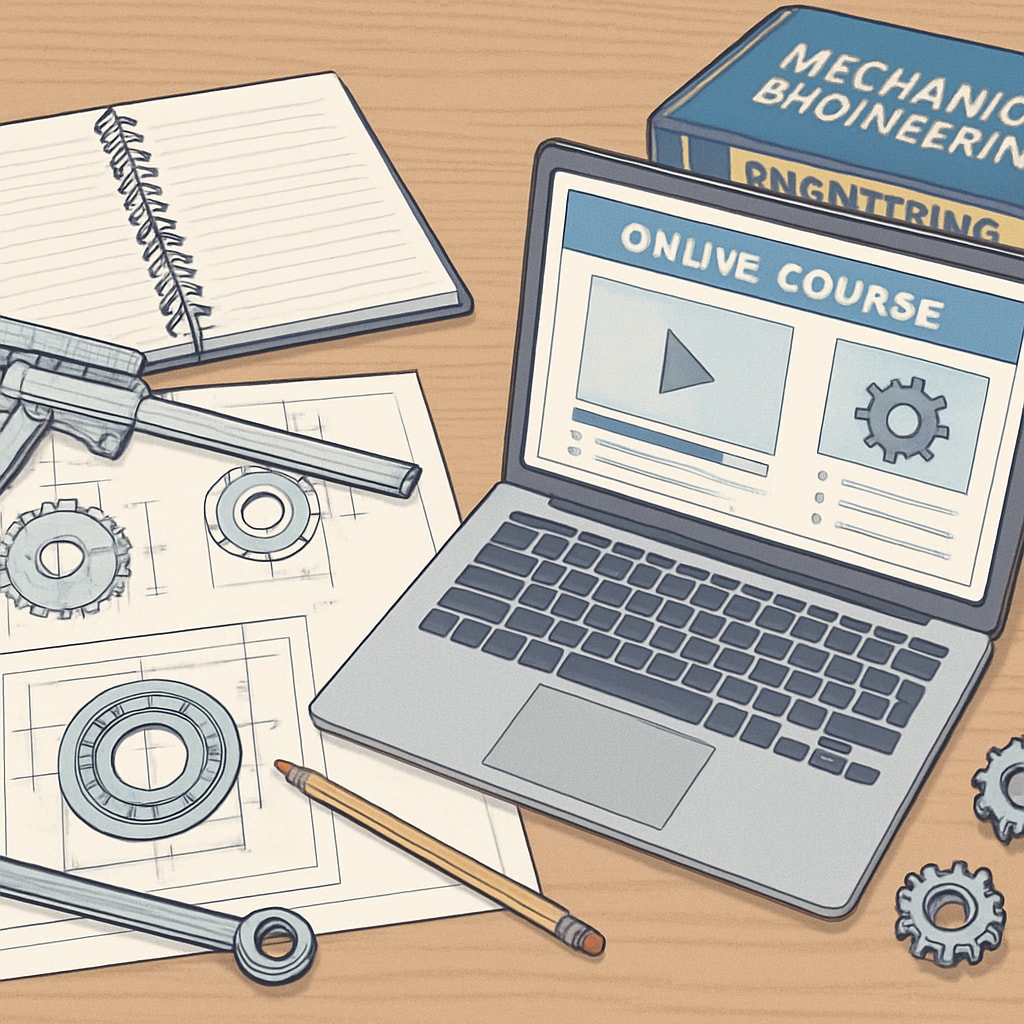Pursuing a mechanical engineering degree is a demanding and rewarding challenge, but is it worth adding an online second degree to the mix? In an ever-changing educational and professional landscape, many students are considering this dual pathway to enhance their qualifications, develop a broader skill set, and improve their future career prospects. This article explores the value of combining a mechanical engineering degree with an online second degree, the challenges involved, and how to effectively balance time and effort.
The Value of Pursuing Dual Degrees
In today’s competitive job market, having diverse qualifications can significantly boost career prospects. A mechanical engineering degree provides a strong foundation in technical problem-solving, design, and systems thinking, but pairing it with an online degree in a complementary field—such as computer science, business administration, or environmental studies—can enhance employability. For example, combining engineering with business can prepare students for managerial roles, while adding computer science can open doors to advanced automation and robotics careers.
Moreover, online programs offer flexibility, allowing students to learn at their own pace and fit coursework around their primary studies. This makes them an attractive option for those looking to gain additional skills without compromising their focus on mechanical engineering.

Challenges of Managing Dual Degrees
While the benefits are clear, pursuing two degrees simultaneously comes with challenges. Time management is a critical factor. Mechanical engineering programs are already rigorous, with a heavy workload of lectures, lab sessions, and projects. Adding an online degree means students need to allocate additional hours for coursework, assessments, and self-study.
Another challenge is maintaining academic performance in both programs. Splitting focus between two demanding areas can lead to burnout if not managed carefully. Students must also consider the financial implications of enrolling in an additional program, even if online degrees are generally more affordable than traditional ones.
Strategies for Balancing Dual Degree Programs
To succeed in a dual degree pathway, students should adopt strategic approaches:
- Prioritize Tasks: Use tools like planners or digital apps to organize daily schedules and prioritize assignments.
- Leverage Program Flexibility: Choose online courses with asynchronous options, allowing for more adaptable study hours.
- Seek Overlapping Skills: Select an online degree that complements mechanical engineering, enabling shared knowledge and reducing the need to master entirely new subjects.
- Utilize Support Resources: Many universities offer academic advisors, mentorship programs, and mental health resources to help students cope with workload pressures.
By implementing these strategies, students can set themselves up for success in both academic and professional realms.

Future Career Opportunities
Combining a mechanical engineering degree with a second qualification can open doors to diverse career paths. For example:
- Engineering Management: A business degree can prepare students for leadership roles in engineering firms.
- Technology Integration: A computer science degree can lead to opportunities in fields like AI-driven design and manufacturing.
- Environmental Solutions: Pairing engineering with environmental studies can lead to roles in sustainable design and renewable energy projects.
Employers value candidates who demonstrate initiative and versatility, and dual-degree holders often stand out in competitive job markets. Additionally, the self-discipline and time management skills gained from managing two degrees are attractive attributes to any employer.
Conclusion
Pursuing an online second degree alongside a mechanical engineering program is a bold and strategic move for students looking to enhance their qualifications and expand their career opportunities. While it requires careful planning, dedication, and effective time management, the long-term benefits can outweigh the challenges. By aligning their interests and career goals with complementary degrees, students can position themselves as versatile and future-ready professionals in an ever-evolving job market.
Learn more: For further reading on mechanical engineering careers, visit Mechanical Engineering on Britannica. To explore online education opportunities, check Online Degrees on Wikipedia.


